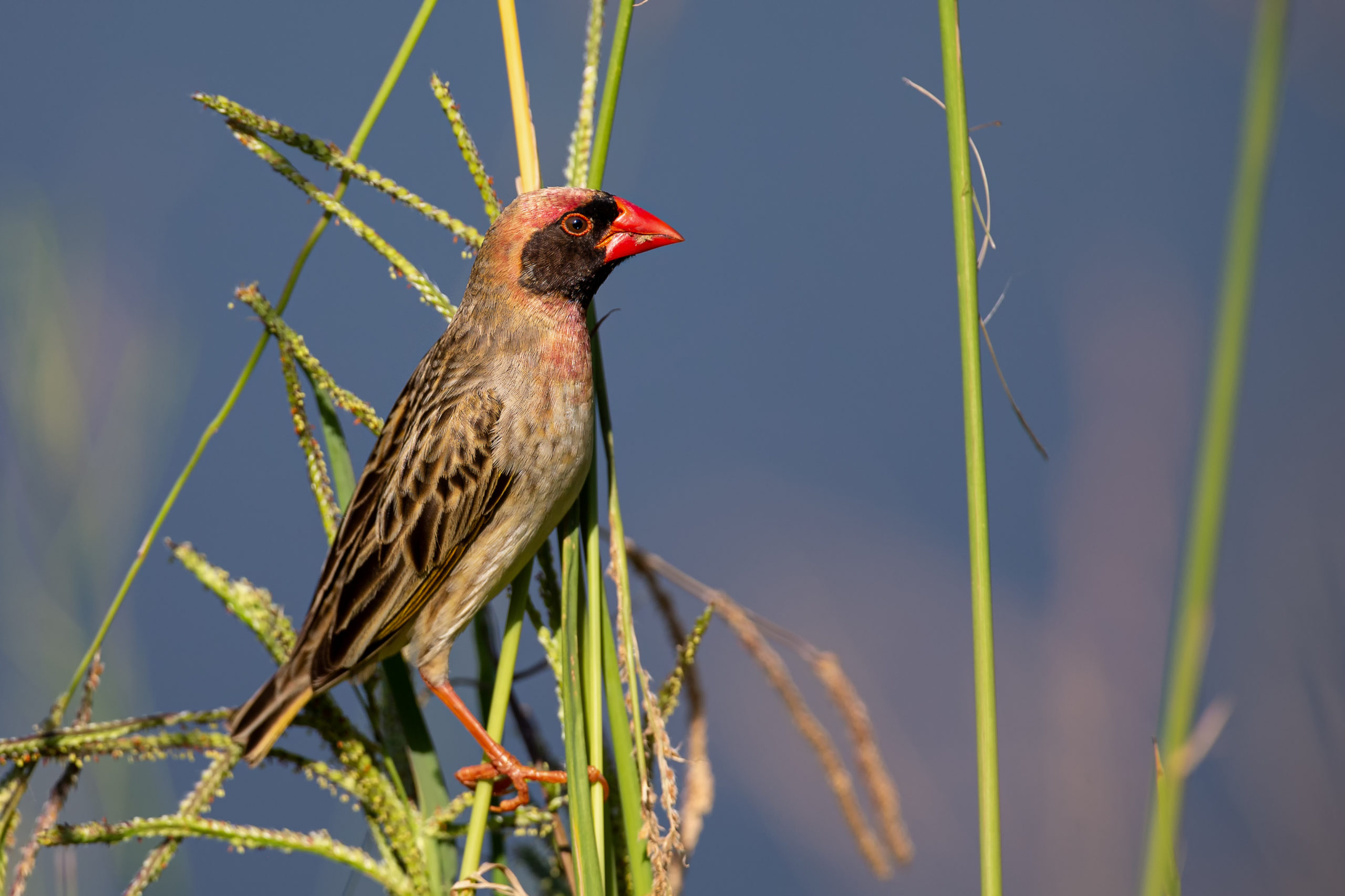Opportunities for innovation to reduce damage caused by quelea birds in Africa

In April 2023, we brought together stakeholders from the UK and Africa to explore innovation to reduce crop loss due to quelea birds in Africa.
This event was part of AgriFood Africa Connect, funded through the GCRF AgriFood Africa programme which is delivered by Innovate UK. Watch the event sessions on replay here.
Quelea are migratory birds which eat small grain crops like sorghum and rice in Africa and cause significant damage to farmers livelihoods.
If this topic is new to you, watch the introduction to quelea birds, the problems they cause in Africa and the control methods that are being explored, by Professor Bob Cheke from the Natural Resources Institute.
Here are four ways innovation could reduce the damage caused by quelea birds in Africa, as discussed during our event.
-
Predictive modelling could improve decision-making and control of quelea
Being able to predict where quelea may roost, or their future distribution and abundance, could help coordinate efforts to control quelea across Africa. This could also inform land use, crop choice or planting time in different regions to minimise damage and protect food security. Being able to make informed decisions would be valuable. Challenges associated with not being able to do this well were highlighted by several speakers.
Shingirayi Nyamutukwa from the Migratory Pests and Biosecurity Control Department in Zimbabwe discussed the drive to increase sorghum and other small grain crop production in Zimbabwe but how these crops often become targets for quelea.
Moses Mafabi from the Desert Locust Control Organization for Eastern Africa highlighted examples in Tanzania of irrigated land changing the feeding patterns of quelea in unexpected ways.
Habiba Suleiman from Wacot Rice spoke about how rice farmers in Nigeria are planting trees but that these can encourage roosting birds and potentially increase crop damage if planted in the wrong place.
Rachel Dobson from the University of Leeds spoke about the models she has been developing to forecast quelea distribution in Southern Africa using historical data of their distribution. Further innovation is needed to develop effective predictive decision-making tools for farmers to use. Exploring new methods to collect data for inclusion in these models such as real-time reporting or direct tracking of birds could also improve their impact.
-
Insurance products could help support farmer livelihoods
Predictive models and better understanding the factors driving the risk of crops being damaged by quelea could enable insurance products to cover crop loss due to birds to be sold. Samuel Macharia from ACRE Africa highlighted that insurance products could support farmers’ livelihoods as well as encourage investment into agriculture.
-
Innovative control or deterrent tools are required
Innovation is needed to diversify the methods used to control quelea. This could enable us to move away from more damaging methods of control such as pesticides, or to use these more effectively and safely. Many ideas for control were discussed including:
- Drones to ‘herd’ or track birds.
Dr Aditya Paranjape from Imperial College + Tata Consulting Engineers spoke about how his work on the use of drones in different scenarios could be applied to quelea monitoring, scaring or control.
- Novel sound-based deterrents.
Professor John Swaddle from William & Mary in the USA spoke about the use of sonic nets to scare birds away.
- Crop breeding.
Dr Ephrem Habyarimana from ICRISAT spoke about how the structure or architecture of sorghum could discourage birds from eating the seeds. This could potentially be applied to other crops.
- Agronomy and farm management methods, including weeding fields to reduce crop loss.
Professor Jonne Rodenburg from the Natural Resources Institute presented his research on this topic.
- Contraceptives to control population size.
Dr Giovanna Massei from the Botstiber Institute for Wildlife Fertility Control focuses on contraceptives and pest control. If these work for quelea they could be a new method for control.
-
New collaborative approaches are needed
This is essential to implement control/deterrent methods at landscape level and to bring diverse stakeholders together to enhance their impact. Multiple speakers discussed the need to take a wider, landscape or ecosystem approach to control and to consider the broader knock-on impacts of control approaches.
Aiko Watabe from Pegara spoke about their project in Zimbabwe, and how they are exploring using combinations of solutions and AI to prevent crop loss.
For complex cross-border issues, novel ways of bringing together stakeholders are required. Nils Bunnefeld from the University of Stirling highlighted that equity and trust are important enablers of community-based approaches to manage conflicts between agriculture and biodiversity conservation. He also discussed how community approaches are often underused in global-to-local policy and management.
If you are interested in innovation to reduce crop loss due to quelea, get in touch with Joanna Scales here.
Related programme

AgriFood Africa Connect
Innovate UK AgriFood Africa Connect brought innovative people and organisations across the UK and Africa together to develop solutions for the sustainable management of AgriFood systems in Africa.


